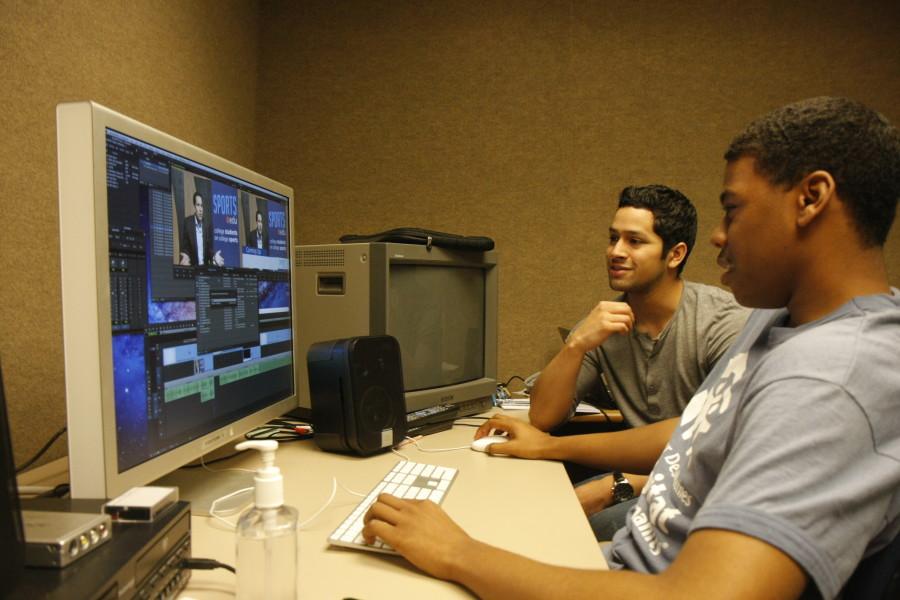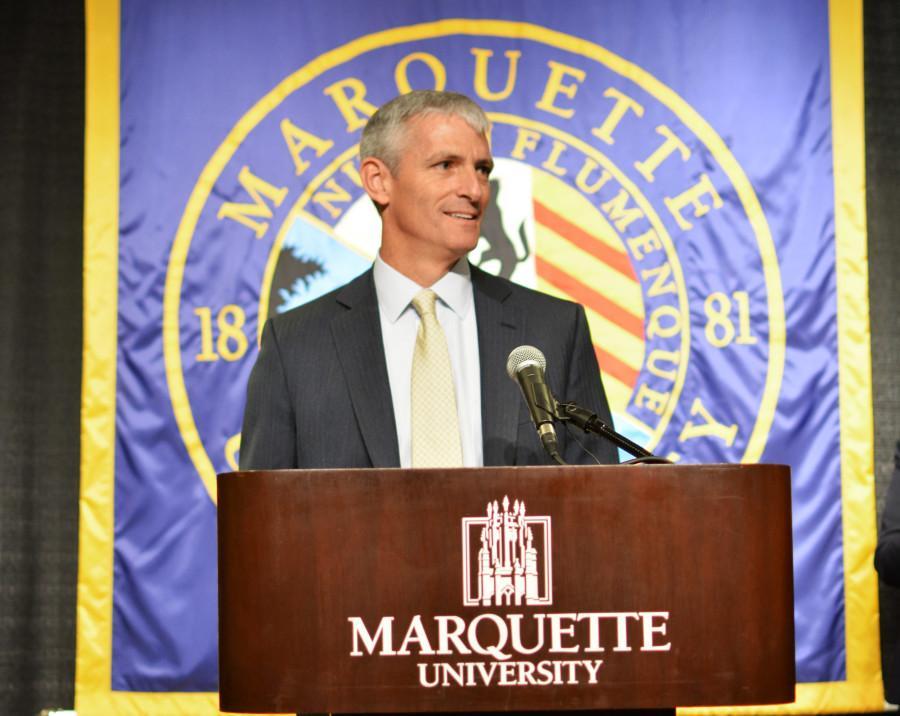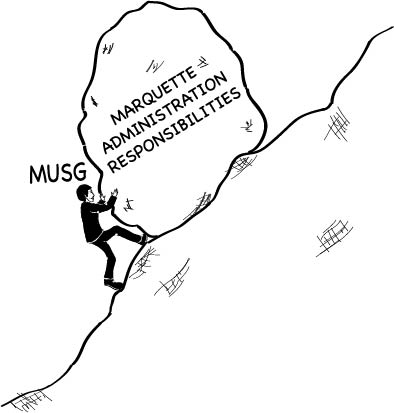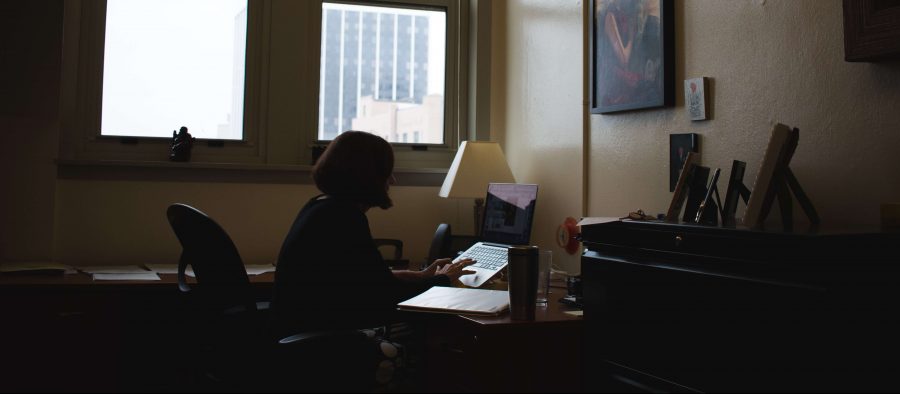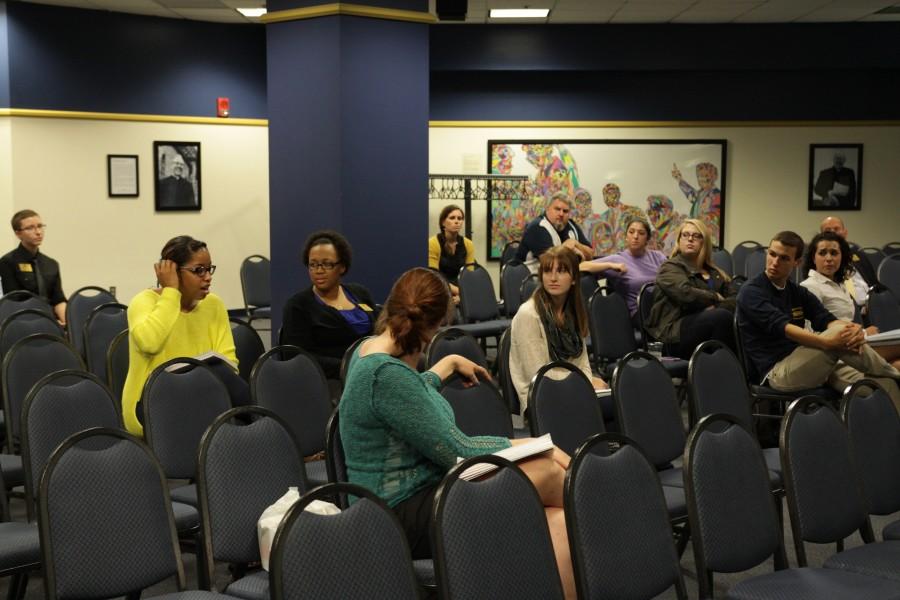After receiving academic sponsorship from the University Honors Program, FemSex, a weekly student workshop centered on the discussion of female sexuality and reproduction, is returning to Marquette’s campus this fall. The program underwent scrutiny last year and eventually lost support from university administration.
FemSex raised controversy last winter after some Marquette donors, faculty and alumni asked University President the Rev. Scott Pilarz why it was allowed on campus, wondering if the workshop’s content was appropriate for a Catholic and Jesuit university. According to its syllabus, FemSex involves “discussions, activities, and individual exercises (designed to) explore what it means to take ownership of one’s own sexuality, body, pleasure, language, and education.”
After reviewing the FemSex syllabus, Pilarz and former Provost John Pauly decided to withdraw university sponsorship in February, prohibiting FemSex from being held in the Gender and Sexuality Resource Center. The decision was met with criticism from FemSex supporters who said that Pilarz was too quick to make the decision and should have consulted more students first. After it was pulled, FemSex finished its run with sponsorship from the University Honors Program.
This year FemSex will again be hosted by the honors program, a decision made by its director, Amelia Zurcher. The workshop will start with an information session tonight at 7 p.m in Ballroom C of the Alumni Memorial Union.
“As an academic seminar, it needs an academic home on campus,” Zurcher said in an email. “I think an academic home for (FemSex) helps show its legitimacy to those who are less familiar with gender and sexuality studies and their place on campuses all over the country.”
Zurcher said the University Honors Program provides space and academic support for FemSex as a sponsor, but no funding is involved in their relationship.
John McAdams, associate political science professor, is a vocal opponent of FemSex on “Marquette Warrior,” his personal blog. McAdams said “it’s bad judgement on the part of the Honors Program to sponsor it.”
“If there were some actual technical expertise involved, it might be more of a legitimate academic exercise,” McAdams said, pointing out that FemSex is not led by professors, teachers or licensed counselors.
McAdams said FemSex’s academic legitimacy would increase if it adds debate and disciplinary content.
Ethan Hollenberger, an alumnus who helped bring FemSex to Pilarz’s attention in February, said he supports holding FemSex on campus, but prefers that it be run without university sponsorship.
“If this is truly student-led and this is truly student programming, let it be so and let the student organizations run it,” Hollenberger said. “When an academic program sponsors (FemSex), you see the (Marquette) Catholic identity eroding.”
Alisha Balistreri Klapps, Claire Van Fossen and Rachel Bruns developed the curriculum for FemSex. They said they believe FemSex is not at odds with Catholic views.
“FemSex does not push any ideology, teach or impart any prescribed concepts, generalize experiences, make prescriptions, or advocate a particular philosophy or morality,” Van Fossen, Balistreri Klapps and Bruns said in a joint statement. “FemSex grapples with issues core to our humanity that are too often shamed, silenced, and ignored, often to the detriment of individuals and communities.”
Minor changes were made to last year’s FemSex syllabus. Van Fossen, Klapps and Bruns said the changes were to clarify workshop procedures, values and expectations. No changes to content were made.
Balistreri Klapps, Van Fossen and Bruns said that FemSex has multiple offers of sponsorship from entities on and off campus. Its facilitators have also approached the GSRC and are having discussions to bring them back as sponsors, said Susannah Bartlow, director of the center.
Despite its rough history at Marquette, Zurcher said she still sees FemSex as beneficial to students.
“FemSex empowers (participants) to understand, respect, and appreciate their own sexuality, and use it in just and healthy ways,” she said. “The venue it creates helps foster a more inclusive, respectful and intellectually curious environment on campus.”



